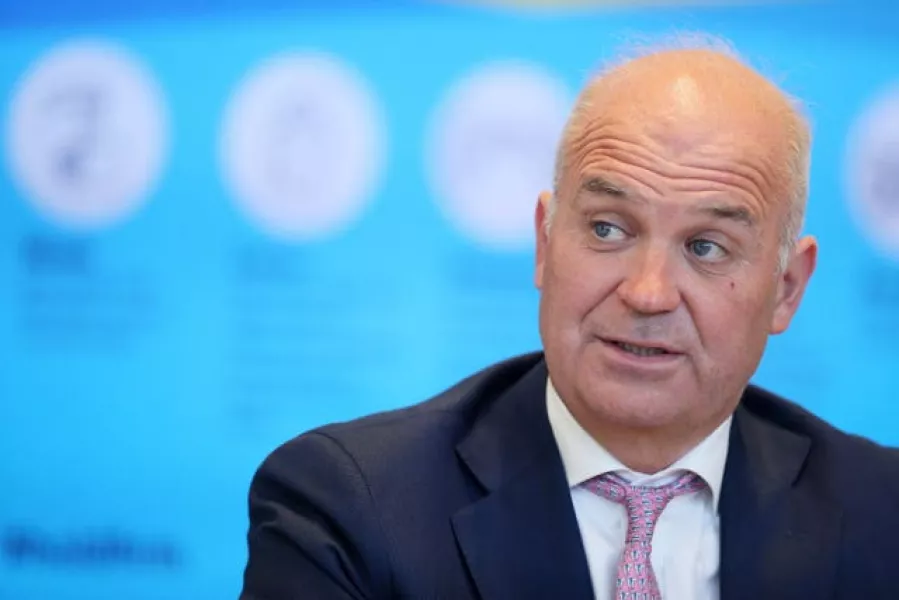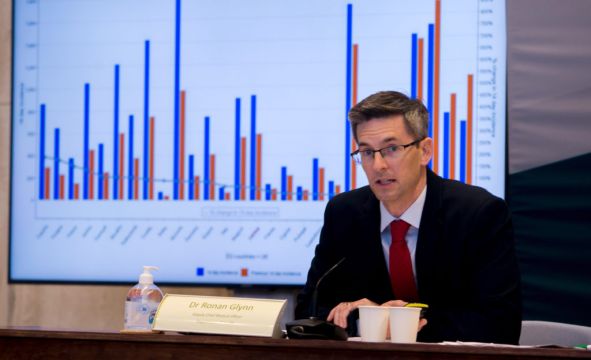Ireland’s deputy chief medical officer has warned people who are close contacts and fully boosted not to “drop all protective measures” following the change in isolation rules.
Dr Ronan Glynn said he recognises that guidance for close contacts in recent weeks has been “complex”.
Dr Glynn made the comments as the Government signed off on plans to relax the rules for close contacts of Covid cases, which will take effect from midnight on Thursday.
“I’d be hopeful that the simplification (of rules) would mean that any potential increase in infection by reducing measures on the one hand will be offset by increased compliance with all the other measures on the other hand,” Dr Glynn said.
“Clearly there’s a risk in anything that we do other than telling people to stay in their rooms for 14 days.
“So what we’ve been trying to do throughout the pandemic is to balance risk, taking into account best international advice, guidance and available evidence.
“If people simply hear the message that they no longer need to restrict movements or the need to restrict movements for less days than previously, and then go about their business and drop all other protective measures, clearly that increases risk.
“But that’s not what we recommended and hopefully that’s not what people will hear.
“We do recognise that guidance that has been in place over the last number of weeks has been complex and hasn’t necessarily been simple for individuals to understand.
“So a key part of what we’re doing is trying to simplify the entirety of the approach.”
Chief medical officer Tony Holohan said the National Public Health Emergency Team (Nphet) will meet next week to assess the epidemiological picture.
Dr Holohan also said he has written to National Immunisation Advisory Committee (Niac) to consider questions around “population immunity” following high case numbers in recent weeks.
“I think there are questions about population immunity and for that reason, I’ve written to the Niac asking them to give some consideration,” he added.
“Given our experience now, both the protection that we’ve seen from severe infection for people who are vaccinated and boosted, and also the performance of the vaccines, in terms of not just the impact on symptomatic transmission, but the duration of that and how quickly that might wane.
“What might then be concluded, if you like, around the continuing objectives of a vaccination programme, and the objectives that it might have.
“I think it’s prudent for us to now begin to start to give some consideration to that, and to have that inform our future strategies.
“I don’t want to get ahead of ourselves. We still need sufficient time.
“The detailed assessment of all of those questions, I think will come next week and we’ll be in a better position having had a detailed Nphet discussion.”

Dr Holohan also addressed Israel’s approach to administering a fourth vaccine dose.
Israel started administering fourth doses of the vaccine to citizens last week.
“I think it’s not at all certain that is the right route to follow, and I’m not saying that it’s wrong, but it’s not certain that the route to follow is the Israelis and the way they’ve gone towards the fourth booster,” Dr Holohan said.
“Europe at a licensing level, but also us as an individual country, are going to give consideration to this.
“The vaccines’ primary function is to protect people against their infection becoming a severe infection and that’s held up really well.
“It appears then that the level of protection that the vaccine then offers against symptomatic infection, or transmission, well it wasn’t perfect, it does appear to wane quickly and repeatedly after each individual dose.
“We’ll have to look at all of those kinds of things to say, what does that mean for a vaccine strategy into the future? I think we need to be cautious.”







